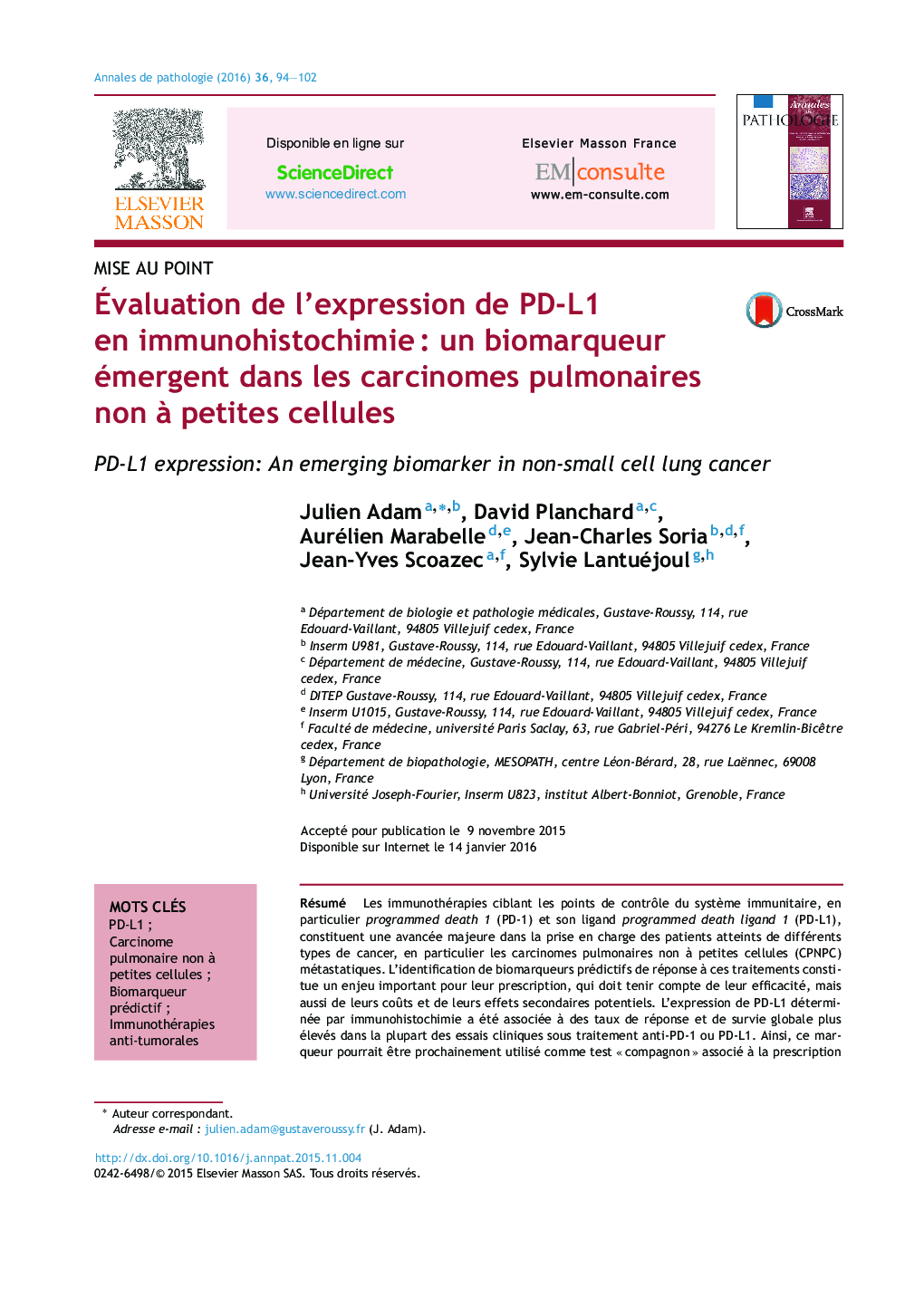| Article ID | Journal | Published Year | Pages | File Type |
|---|---|---|---|---|
| 4127942 | Annales de Pathologie | 2016 | 9 Pages |
Abstract
Therapies targeting immune checkpoints, in particular programmed death 1 (PD-1) and its ligand programmed death ligand 1 (PD-L1), are major new strategies for the treatment of several malignancies including mestatatic non-small cell lung cancer (NSCLC). The identifiation of predictive biomarkers of response is required, considering efficacy, cost and potentiel adverse events. Expression of PD-L1 by immunohistochemistry has been associated with higher response rate and overall survival in several clinical trials evaluating anti-PD-1 and anti-PD-L1 monoclonal antibodies. Thus, PD-L1 immunohistochemical companion assays could be required for treatment with some of these therapies in NSCLC. However, heterogeneity in methodologies of PD-L1 assays in terms of primary antibodies and scoring algorithms, and tumor heterogenity for PD-L1 expression are important issues to be considered. More studies are required to compare the different assays, ensure their harmonization and standardization and identify the optimal conditions for testing. PD-L1 expression is likely an imperfect predictive biomarker for patient selection and association with other markers of the tumor immune microenvironment will be probably necessary in the future.
Keywords
Related Topics
Health Sciences
Medicine and Dentistry
Pathology and Medical Technology
Authors
Julien Adam, David Planchard, Aurélien Marabelle, Jean-Charles Soria, Jean-Yves Scoazec, Sylvie Lantuéjoul,
